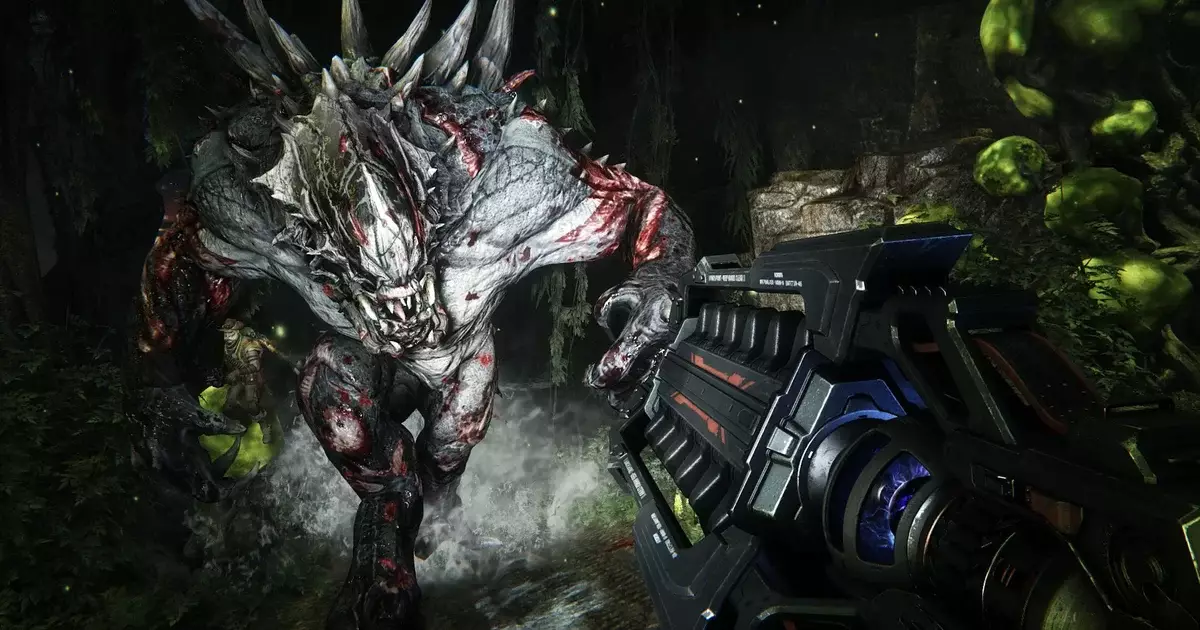When Evolve burst onto the scene, it promised an exciting take on asymmetrical multiplayer shooters—a genre ripe for innovation. Its core mechanic of a single, formidable monster fighting against four specialized hunters offered a compelling dynamic that kept players engaged. At its best, the game delivered adrenaline-pumping chases, strategic team play, and the thrill of controlling a monstrous entity capable of wreaking havoc. However, beneath its promising surface lay a series of missed opportunities—most notably, its dependency on live service structures, grind-heavy progression, and aggressive monetization strategies that marred its initial appeal.
This reliance on a constantly evolving ecosystem shifted the focus away from pure gameplay and toward relentless unlocks and microtransactions. Instead of emphasizing skill, teamwork, and map mastery, the game nudged players toward a laborious grind that soured the experience and created barriers for newcomers. The core concept had potential; a smarter design could have prioritized organic growth, unlocks based on player achievement, or cosmetic customization that didn’t interfere with gameplay balance. Unfortunately, Evolve became a cautionary tale about how live service ambitions can distort what could otherwise be an innovative and memorable title.
The Canceled Dreams of Evolve 2
The story behind Evolve’s untimely demise is intertwined with studio ambitions that never materialized—a silently buried chapter marked by creative frustration and shifting priorities. Concept art for an Evolve sequel, unearthed from a developer’s portfolio, reveals a universe rich with possibility. Instead of sticking to the game’s original formula, these ideas explored more linear missions, detailed environments like asteroid mining facilities, and locations reminiscent of sci-fi horrors such as Dead Space’s USG Ishimura.
Imagine a game set in the colossal Akhenaten mining station, a place teeming with insectoid threats feeding on cosmic debris, or a mission-based experience that pushes the narrative forward, rather than relying solely on sandbox chaos. These concepts hint at a refinement of not only the game mechanics but also the storytelling—less “hide-and-seek” and more “combat-driven adventure.” Sadly, the project was shelved after a few months of pre-production, with the studio pivoting to other ventures. Had Evolve 2 proceeded on this more focused, mission-driven path, it might have recaptured the innovative spirit that was lost in the original’s grind-focused design.
What Could Have Been
The potential erosion of Evolve’s original appeal was partly borne out of its design decisions, but also by external factors like publisher decisions. Tencent’s acquisition of Turtle Rock in 2021 might have offered new opportunities, but instead led to silence about what’s next. The canceled sequel’s concept art and design documents reveal an aesthetic and thematic richness that seems wasted—an unfulfilled narrative universe yearning for exploration.
Imagine traversing a sprawling asteroid facility teeming with hostile lifeforms, their alien biology depicting a grotesque yet fascinating ecosystem. Such environments could have showcased inventive architecture, diverse creature designs, and memorable gameplay scenarios. This envisioned world—more contained yet intense—could have served as a fresh, engaging foundation for future iterations, emphasizing atmosphere, storytelling, and refined mechanics over microtransactions. The absence of such a game leaves a void, emphasizing how unfulfilled potential often becomes a testament to poor strategic choices and corporate constraints.
The Reality of Missed Innovation in the Industry
Evolve’s downfall exemplifies a broader industry trend—where ambitious concepts are compromised by commercial pressures. It’s often overlooked how studios that produce innovative ideas can be stifled by monetization strategies that prioritize short-term gains over lasting creative success. Turtle Rock was at a crossroads: continue down the path of expensive live service models or return to the more pure, game-oriented experiences that first defined their reputation. Sadly, economic realities and publisher demands steered them away from the latter, resulting in a game with good bones but poor execution.
Yet, within this story lies an important lesson. The creative ambitions shown in pre-production material demonstrate a clear understanding of what could elevate the genre—more immersive worlds, compelling narratives, and innovative gameplay. They reveal the gap between potential and realization, and serve as a reminder that game development must prioritize visionary design over quick monetary wins. The tragic loss of Evolve’s sequel underscores how commercial constraints can override creative opportunities, leaving promising worlds unexplored.
Reflections on Gaming’s Future
The fate of Evolve and its canceled sequel highlight a persistent struggle within the gaming industry: balancing innovative ideas with economic viability. While the game’s original flaws can be blamed on some design missteps, the broader lesson is that progressive, genre-defining projects often get sidelined by corporate interests. Yet, communities clinging to remnants of Evolve, such as niche servers and fan projects, illustrate a resilient desire for gameplay that centers on skill and excitement rather than monetization.
Looking ahead, the industry could learn from this example—embracing models that support creative freedom and sustainable development cycles. The hope lies in a future where bold concepts like Evolve’s potential sequel aren’t sacrificed for quick profits, but nurtured because they truly push the boundaries of multiplayer gaming. Until then, the ghost of what could have been serves as both a cautionary tale and an inspiration for developers dreaming of better paths forward.

